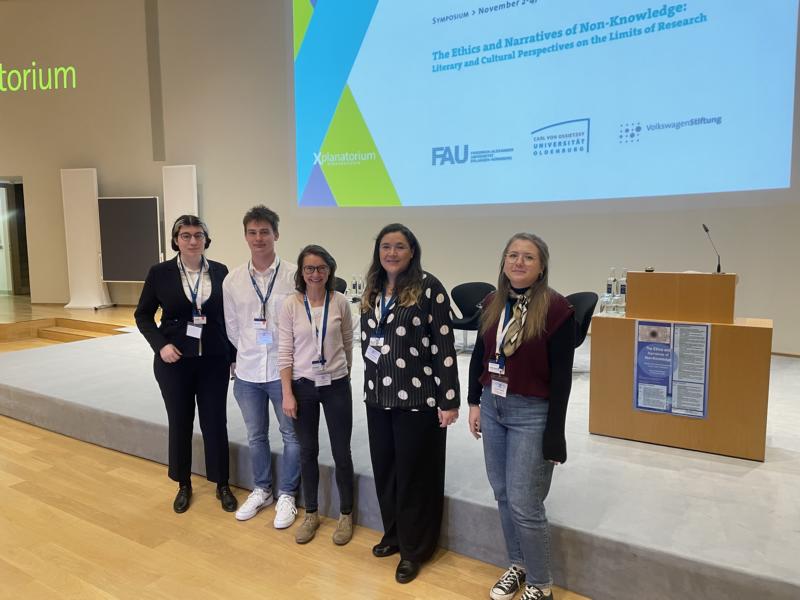Dr. Anna Auguscik, University of Oldenburg
Anna Auguscik teaches English Literature at the University of Oldenburg. She is a postdoctoral fellow in the Fiction Meets Science research group. Her research interests include the novel in the literary marketplace, the history and current state of reviewing and criticism, expedition narratives, and the relationship between literature and science.
“My interest in the discourse about the unknown is linked to a project on expedition narratives. Expeditions are often couched in terms of mapping out, measuring, understanding an unknown landmass, culture or species. The heroic explorer topos resides here. Narratives of expeditions take up and use the idea of venturing into the unknown on levels of content and form and they do so differently, depending on their generic prevalence, their interest in particular disciplines (for example, whether they focus on archaeologist, anthropologist, botanist or geologist expeditions), as well as on the gender of their explorer protagonists, or the text’s stance on imperial projects of knowledge production.”
Priv.-Doz. Dr. Simone Broders, University of Erlangen-Nürnberg
Simone Broders is a member of the academic staff in English Literature at the University of Erlangen-Nürnberg. Her particular research interests incorporate eighteenth-century literature and culture, contemporary writing, and the Digital Humanities. She is the author of The Age of Curiosity: The Neural Network of an Idea in Eighteenth-Century Literature (Habilitation), published in the Anglia book series by De Gruyter in 2021.
“What renders the project on non-knowledge relevant to my research is the close proximity of non-knowledge and curiosity. In my second book, The Age of Curiosity, I explored different manifestations of curiosity in eighteenth-century texts to show that the desire to know is, in fact, a dynamic web in which contradictory ideas co-occur.
I arrived at a new understanding of Lovejoy’s traditional history of ideas influenced by the analogy of artificial neural networks. What my project did not cover was the nature and treatment of the underlying causes that sparked off the initial impulse of curiosity. I found that not knowing about a fact or circumstance was at the core of most of the texts covered in my study. Thus, I am taking the analysis one step further now, looking at the limits of knowledge that elicit curiosity, and at the discourses used to describe and/or overcome them.”

